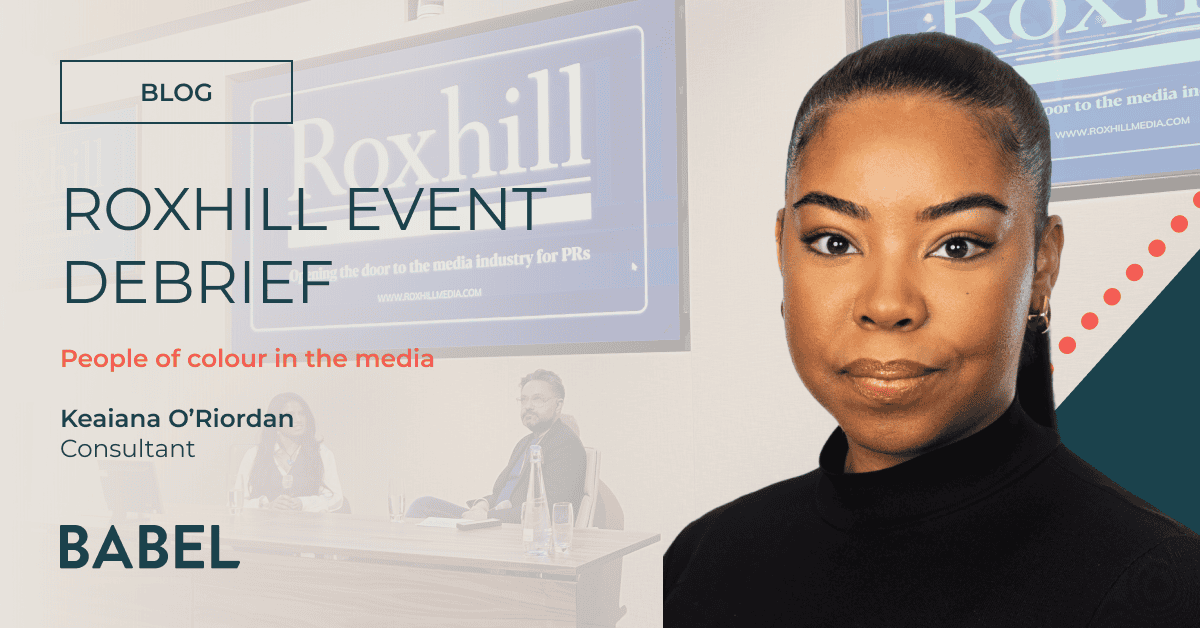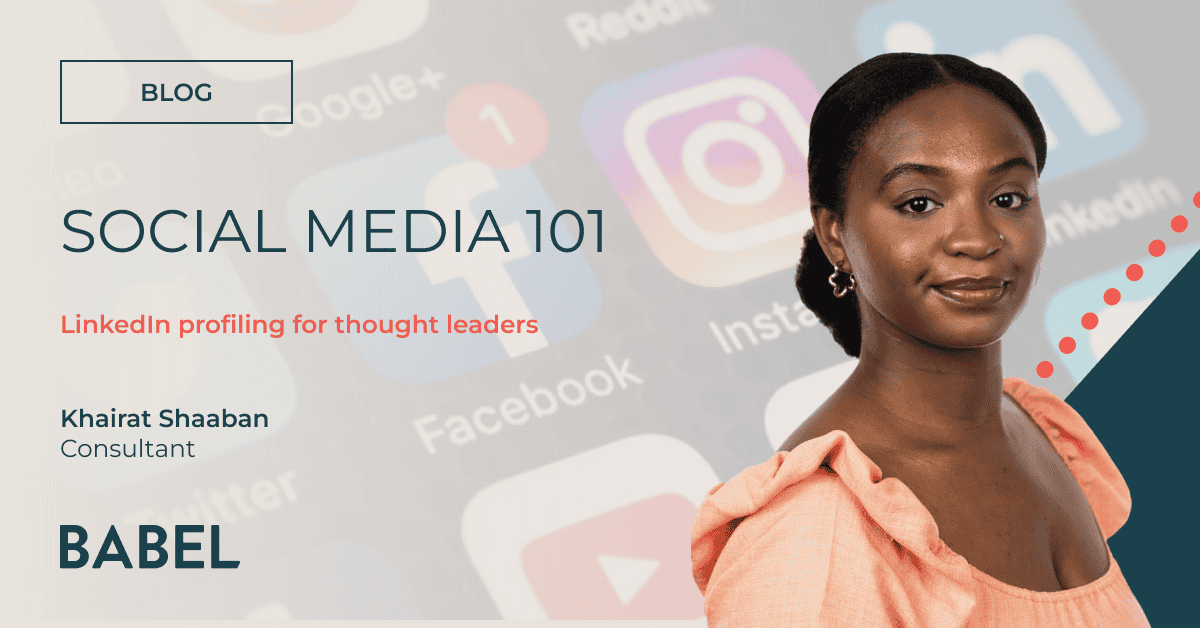
Regulating a diverse communications sector, and diversity in the communications sector: Ofcom outlines 2019 roadmap
Last year, I reported on Ofcom’s Annual Plan Stakeholder Event in London, and Chief Executive Sharon White’s admission of the “pretty grim” diversity situation in the broadcast industry. I returned to the 2019 edition of the event, to find out how – or if – things had improved, and to hear the regulator’s proposed agenda for the year ahead.
Mumbling in Jamaica Inn, tears on Loose Women and Rivers of Blood from the BBC: headline-grabbing consumer complaints mean Ofcom is best-known to many as patient listener, mediator, and sanitiser of the broadcast industry. Tasked with regulating the UK’s communications services – everything from mobile and broadband to TV and Royal Mail – and ensuring these deliver for consumers – Ofcom’s remit is a broad one. It’s also growing more complex, as subscribers swap texting, ITV News and linear TV with WhatsApp, Facebook newsfeeds and Netflix, broadening and diversifying the comms landscape.
Innovation in regulation
Regulation is about policy, rules, and standards; rigid and static by nature. How, then, can Ofcom keep up and align with ever-changing technologies and consumer habits? Yih-Choung Teh, Group Director, Strategy and Research at Ofcom commented that “given the pace of technological change in these sectors – which is of course brilliant in terms of the services and innovation that we see – we continue to be forward-looking in our strategy, and through our monitoring of technical and commercial developments,” the group hopes “to be able to keep an eye on what is coming and continue to ensure that we serve consumers well.”
A little vague, perhaps. And in terms of the online space? “We’re keen to continue to innovate in our approach to regulation, and we recognise the increasing use of services online is a reality for all of us,” he continued. What that innovation actually looks like was not entirely clear, but may consist of “contributing to the debate around harmful online content”, “providing research as part of media and digital literacy duties”, and “advising the government.”
Taming the wild west web
Ofcom has a hard task. Ensuring news presenters deliver accurate, unbiased news reports at 6pm every evening is an entirely different beast than attempting to tame news (and other) output across the wild west web. Adults in the UK spend one day out of every week on the internet, almost double that spent a decade ago. This amounts to a sizeable proportion of the population spending a sizeable proportion of their time consuming unregulated, often dubious (FAKE NEWS!!!) information. At this stage, Ofcom’s approach is more investigation than implementation: the regulator’s Annual Plan states its commitment to “exploring how to maintain the prominence of public service broadcasting content and services in an online world.”
Diversity deficit…
From the breadth, scale and diversity of the internet, to the homogenous palette of the broadcast industry workforce. This year will see the third release of Ofcom’s reports on diversity and equality of opportunity in the UK’s TV sector. Last year’s report noted some progress, yet it also highlighted how much further the sectors must evolve in order to be truly representational of the audiences they cater for. According to 2018’s report, the proportion of employees who define themselves as disabled doubled from 3% to 6%; far below the UK population average of 18%. Minority ethnic representation at senior levels actually fell, and minority ethnic employees continue to be underrepresented across content and creative roles.
The 2019 findings, said Siobhan Walsh, Director, Content Policy, Ofcom will contribute to the creation of “a rich report that over time shows how developments are being made within the sector”, which will “provide a comprehensive picture of how workforces reflect the wider UK population and what steps major broadcasters are taking to improve diversity and inclusion.”
…and data deficit
There are, Walsh admits, “still areas for further development” – but how much influence does Ofcom really have over the make-up of the industry?
One issue, highlighted during a Q&A session which concluded the event, was Ofcom’s (lack of) access to the data required to build this “comprehensive picture.” Freelancers working for the major broadcasters, for instance, remain largely unmonitored, and Ofcom’s powers to obtain employment data are limited. Could the regulator ask the government to extend its powers? There were also questions around the extent to which Ofcom has taken action to redress inequalities and to gauge their success. While there are reports and initiatives, could there be more evaluation, more communication with broadcasters, and a more thorough assessment of the efficacy of some of these measures?
“As a regulator, we operate within our statutory remit, and our ability to collect data on an obliged basis depends on statute,” responded White. “There are areas that we would love to have broader, more comprehensive data” – and the chief exec has certainly tried: “I’ve written to Karen Bradley when she was Secretary of State [for Culture, Media and Sport], asking the department to essentially change the law that would allow us to collect data on a mandatory basis, as opposed to seeking it on a voluntary basis.” The letter went unanswered, and since then, “circumstances haven’t got easier”, said White, in a thinly-veiled reference to the B-word. The government has created plenty of its own problems to deal with, and its legislative timetables reflect this.
Vikki Cook, Ofcom Director of Standards and Audience Protection, commented that the regulator is “always incredibly open and happy to meet with stakeholders” to discuss issues around diversity. However, this is “probably one of the most complex areas” it’s tasked with assessing and addressing, and “it’s not something which can be resolved or fixed overnight – or within a couple of years.”
The B-word
It’ll be interesting to see the results of Ofcom’s 2019 findings when the report lands later this year. It will also be interesting to find out whether Brexit, in addition to pushing data access down the government’s agenda, will have impacted diversity – 13% of those currently working in the sector are European. It was “only a matter of time” before Brexit was mentioned, said Yih-Choung Teh during his opening presentation. He continued: “Who knows where we’ll end up, but in any event we recognise there are strategic implications of how our relationship with the European union is changing, and we’re thinking about how that changes in terms of how we work collaboratively with the regulators.”
Much else was announced at the event: Ofcom aims to complete the work it started in 2018, democratising access to network infrastructure to help expedite fibre roll-out; to investigate how blockchain could be used for telephone numbering allocation and management; to implement a plan to promote investment and competition in 5G and connectivity services; to launch a review of BBC News and current affairs output; and, said Yih-Choung Teh, “to assess the threat of [cyber] attacks and ensure that there are appropriate levels of resilience in place.”
Ofcom too will have to remain resilient. It has a packed year ahead, and a daunting task: ensuring quality and accessibility of content services for every demographic, geography and facet of the UK. All this in the face of technological change and a fluid relationship between consumers and devices. Walsh quite rightly, asks: “How do you predict a future that’s unpredictable and changing so quickly? How do you develop regulation that’s flexible enough to evolve? And how do you deliver that regulation if required, at pace?”





